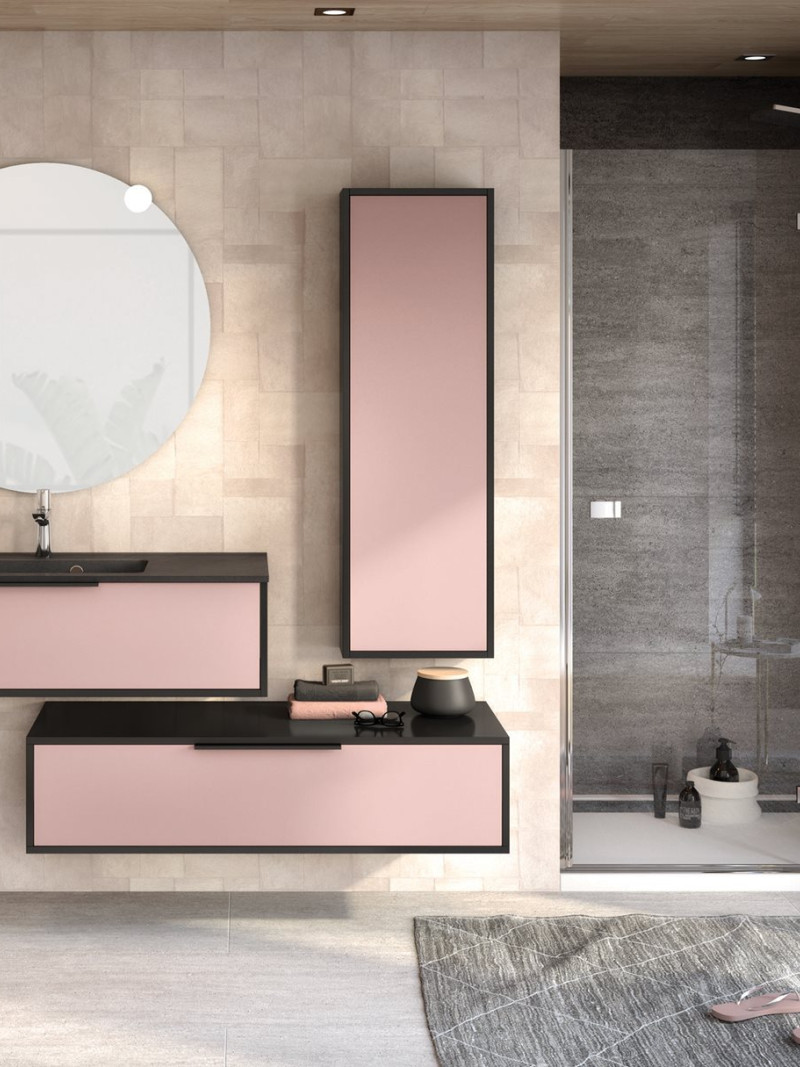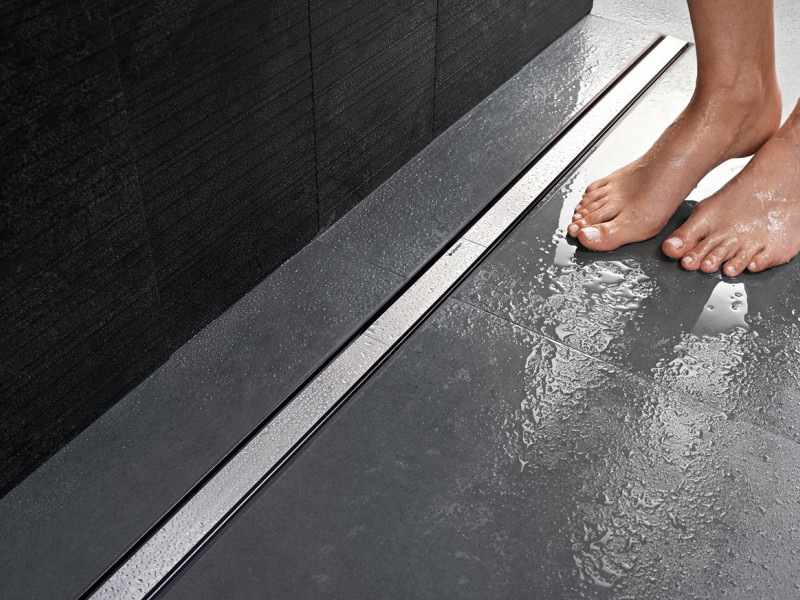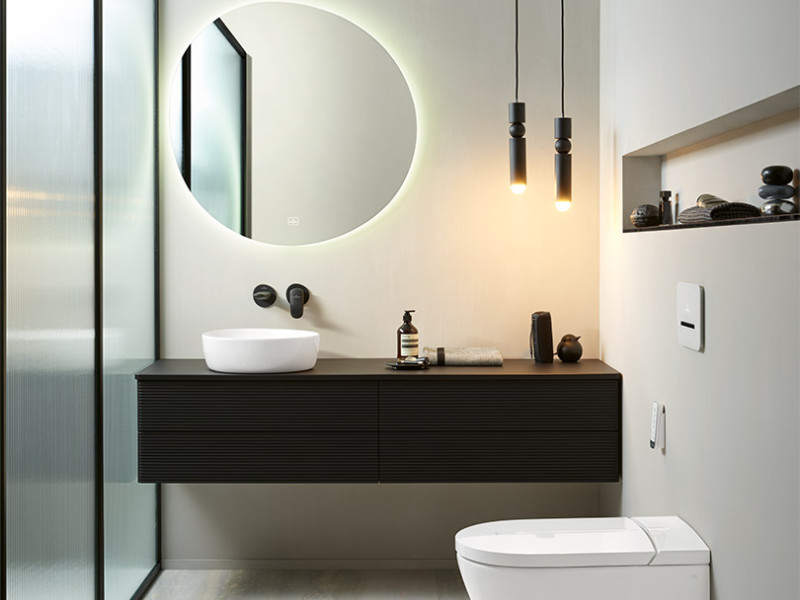How to estimate your bathroom renovation budget ?

Bathroom
How to
Your budget will vary according to many factors: the size of your bathroom, the choice of materials and furniture, whether you want to renovate yourself or have someone else do the job, and so on. The truth is, it’s not possible to estimate costs down to the smallest detail. However, there are a few basic rules of thumb. These will give you a fairly accurate idea of how much you will have to spend, and therefore how much money you will need to set aside to refurbish your bathroom.
What factors increase the cost price?
Of course, the size of your bathroom will play a crucial role in your budget. A larger bathroom will need more materials and labour. If you have a small space, then a clever design, such as replacing a bathtub with a shower, can help to reduce your costs. In Belgium, a fully renovated medium-sized bathroom costs around €10,000. But for larger rooms, the price can be twice that or more.

Choice of materials
Inexpensive materials (ceramics, laminates, etc.) can reduce your expenses. High-end options (marble, ceramic, solid wood) bring a touch of luxury and durability, but they obviously cost more. A trendy Italian-style shower will cost you between €1,500 and €2,500, while a traditional shower cubicle is more affordable. Bathtubs vary between €600 and €2,000, or more for top models.Furniture and finishes
Made-to-measure furniture and designer finishes are a major investment. A piece of designer bathroom furniture can cost between €1,000 and €3,000, although a standard model is often more affordable. Remember to prioritise quality when choosing furniture, in order to guarantee long-term durability.The extent of renovation
A partial renovation may involve upgrading some elements, such as the toilet or shower. But a full renovation often means moving water pipes and electrical outlets, and this task increases costs. Underfloor heating can also affect your expenses, but will provide better thermal comfort.Labour costs
Your expenses will vary greatly, depending on whether you decide to do the work yourself or to call in a professional. Some tasks require experts, notably plumbing and electrical work. Rates vary, but you can expect to pay between €50 and €100 per hour for specialised work.
Accessibility and installation standards
If your goal is to make your bathroom more accessible to people with reduced mobility or the elderly, you will need to consider structural modifications. These include installing support rails, providing a clear space under the washbasin for a wheelchair, or step-free access to the shower. Modifications of this kind often require specific work, like strengthening the walls to make support rails, or installing ramps. Such work can add several hundred or thousand euro to the overall cost.Compliance with building standards
Belgian building standards change on a regular basis, particularly in the fields of electricity and plumbing. If your bathroom is old, you will likely need to bring it up to standard. This will entail additional costs. For example, installing standard electrical outlets and replacing waste pipes can increase the initial budget.Building condition
The bathroom’s current state may also affect the budget. If there are structural problems, such as damp or mould, remedial work will have to be done prior to any renovation. This work may involve costly repairs, such as replacing partitions or insulating walls.Lighting and ventilation systems
Proper lighting and ventilation are vital for the bathroom’s comfort and durability. If these elements are lacking, their installation will be an additional expense. A mechanical ventilation system, for example, costs between €200 and €600, while modern and economical LED lighting may require a higher initial investment.
Motivation to save energy
Installing energy-saving appliances, such as instantaneous water heaters or eco-friendly heating systems, is relatively expensive. However, these investments can significantly reduce energy bills in the long term.Completion times
The budget is also affected by completion times, especially if you call on professionals who charge by the hour for their work. Complex projects, such as relocating water pipes or fully customising furniture, generally take longer and therefore cost more.
Ways to limit the cost of bathroom renovation
Renovating a bathroom need not cost a fortune. With a little ingenuity and careful planning, you can create a modern and functional space for a reasonable budget. Here are a few practical tips to help you keep costs down, without compromising on quality or style.

Focus on quality
Quality furniture and supplies are essential to avoid premature wear and tear. Prioritise the essentials, and make sure that standard sizes are suitable. Simple finishes, such as a traditional tap or a small piece of furniture, can be elegant without being expensive.Save on labour
If at all possible, do some of the work yourself. Demolition, painting and tiling can all be done by people with do-it-yourself skills, and this can lead to major savings.Look for economical alternatives
Choose simple yet effective alternatives. For example, a modern shower cubicle will be less expensive to install than a walk-in (Italian) shower. Your costs can also be reduced by using promotional offers or seasonal discounts.Plan carefully and get several quotes
Before you start, draw up a detailed plan of your project to assess the materials, labour and time that will be required. By comparing quotes from several contractors, you can find the best rates and identify any hidden costs. Evaluate the quotes in your own time, to find a balance between cost and quality.
Upgrade existing elements
Various elements, such as furniture, sinks or tiles, may still be in good condition. If so, you could reuse and modernise them. To transform the appearance of your furniture, you may simply need to add a fresh coat of paint, change the handles or apply a new coat of varnish. The same applies to taps, which can sometimes be reused after they are fully cleaned.Install kits
When renovating showers, baths and furniture, kits can be an excellent compromise between cost and quality. They are often easy to install, reducing the need to call in professionals. These kits are not so easy to customise, but they are generally durable and comply with modern standards.Recover and reuse
Consider buying second-hand items or salvaging equipment that is still usable. These can be obtained from specialist retailers or clearance sales. Many materials stores also offer discontinued or surplus items at lower prices, allowing you to save money without missing out on quality.What about grants and tax incentives?
Some renovations, particularly those designed to enhance energy efficiency, may be eligible for grants or tax incentives. Check with your local or regional authorities to see if there are any support schemes for eco-friendly heating systems, better insulation or similar projects.
Combine your purchases
If you can buy all the materials you need from the same supplier, you may be able to negotiate a discount. Combined offers and promotions can reduce the cost of materials and equipment, especially for larger purchases such as furniture or plumbing.Be flexible about deadlines
If your project is not urgent, plan the work during off-peak times of the year. This is when contractors and stores offer discounts to boost sales. Flexibility like this can also give you more time to compare options and save even more.
How much should you budget (in theory) for a renovation?
Floor and wall coverings
The materials chosen for floors and walls can vary significantly in terms of cost. Tiling is very popular, but its price will depend on the type (ceramic, natural stone) and size of tile. Expect to pay between €30 and €80 per square metre for standard tiles, and up to €100 or more for high-end materials like marble or mosaic. For traditional wall coverings, it is common to pay between €20 and €60 per square metre.
Heating systems
The cost of heating a bathroom depends mainly on the type of system chosen. The options available vary, but each has its advantages and disadvantages:
Heating systems
Underfloor heating
Distributes heat evenly, creating a comfortable environment. Both electric and water systems are available. Costs vary between €40 and €80 per square metre, depending on the type of system and the surface to be covered.Heating systems
Traditional radiators
More economical, radiators are a more practical solution. They cost between €200 and €500, depending on the model, power and features (such as a blower).Heating systems
Towel dryer
Combines the comfort of a traditional radiator with the convenience of a towel rack. Basic models start at €100, while more advanced and fashionable versions can be more than €500.Heating systems
Infrared heating
With an ultra-thin infrared radiator – you can barely tell it’s there – you can set a warm and cosy temperature in seconds. Compact and instant comfort. Costs depend on the power required.
Bathroom furniture
A piece of furniture can cost between €1,000 and €3,000, depending on its design and size. Made-to-measure models can be more expensive.
Showers and bathtubs
Showers usually cost between €1,500 and €2,500, while bathtubs can range from €600 to €2,000. Wellness and made-to-measure models are (much) more expensive.
Taps
Taps play a key role in a bathroom’s functionality and design. Prices vary according to the type of tap and options chosen.
Taps
Shower heads
Standard models start at around €200, but a high-quality shower head with advanced functions such as temperature control or a deluxe finish can cost between €600 and €1,500. For a rain shower or complete system, you should expect to pay more.Taps
Washbasin taps
Prices for standard washbasin taps range from €200 to €400, depending on style and features (mixer, single-lever, special design). Top-of-the-range models, often with exclusive finishes, can exceed €500.Taps
Bathtub taps
These larger taps cost between €300 and €800. Wall-mounted models with integrated shower heads are usually more expensive, while free-standing bath columns can cost more than €1,000.
Toilets
Toilets are a vital part of any bathroom, and their price will vary according to the model chosen. A standard floor-mounted toilet ranges from €250 to €400, while a wall-mounted model, often preferred for its sleek and space-saving design, typically costs between €400 and €600. If you wish to add extra features, for example a Japanese toilet with integrated shower, the cost can rapidly climb to €2,000 or more.
Ventilation
Effective ventilation is crucial in a bathroom. A standard air extractor costs around €100-300, while more sophisticated systems, such as controlled mechanical ventilation (CMV), can be more than €1,000, including installation.
Lighting
LED lighting offers an affordable and modern solution. For recessed spotlights, expect to pay €30 to €50 per unit, while wall lamps or ceiling fixtures range from €60 to €200, depending on the design.
Storage
Cupboards and shelving can cost between €100 and €600, depending on the size, materials and their customisation. Modular and prefabricated solutions often offer outstanding value for money.
Mirrors
A heated or anti-fog mirror adds a touch of practical luxury to the bathroom. A basic mirror costs between €50 and €150, while an anti-fog model can cost €400 or more, depending on the size and features.
A complete renovation
For a complete bathroom renovation, you should budget for around €10,000. With expensive materials, plumbing or electrical work and made-to-measure furniture, the cost can climb even higher, to between €15,000 and €20,000.Always plan for unforeseen costs
When renovating, unforeseen costs often occur. Allow a safety margin of 10-20% of the initial budget to cover possible complications, such as water leaks or structural work.
In conclusion
Renovating a bathroom is a major investment and must be carefully planned. Many factors influence the final budget, and every detail must be taken into consideration so as to ensure a realistic estimate of the total cost.
It is important not to rush and to compare several quotes. This will enable you to find the best solution, combining quality, durability and cost. To make the process easier, please contact the experts at Facq. They can provide you with a tailored quote based on your needs, design preferences and budget.